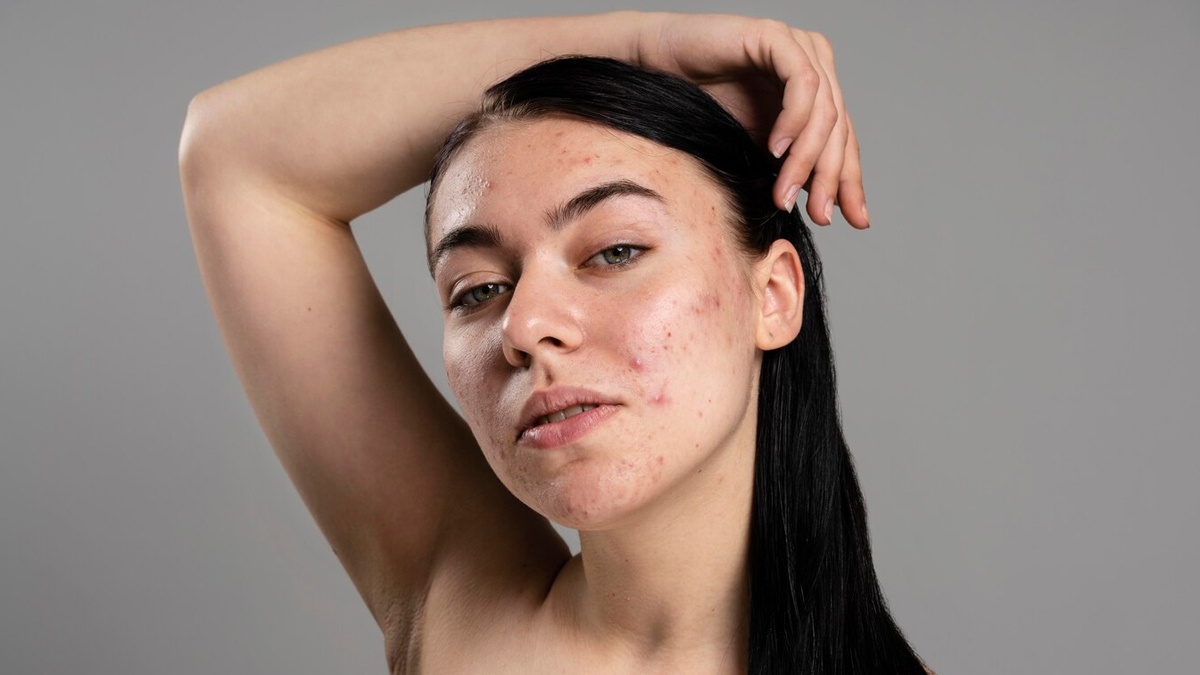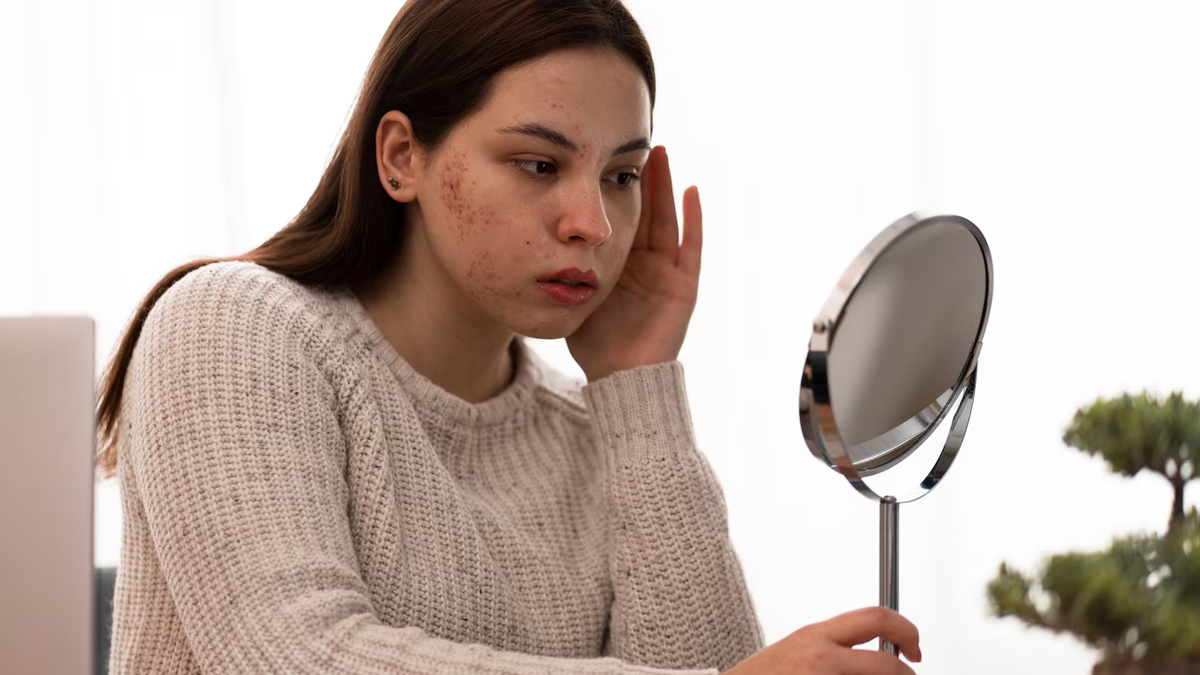
We've all heard the phrase, ‘It's all in your head.’ It is usually a dismissive expression, but when applied to our skin, there may be more to it than we know. Whether it's a sudden breakout right before an important presentation or a nagging rash when we are under a ton of stress, most of us have had anecdotal evidence of the maddening connection between our mood and the health of our skin. But is it mere coincidence, or does there exist a scientifically proven relationship between your dermis and your mind?
Table of Content:-
In an exclusive interaction with the editorial team of Onlymyhealth, our expert, Dr Sanjeev Gulati, Department of Dermatology, Sharda Hospital, Noida, explained that at the centre of this relationship is the brain-skin axis, a dynamic system of pathways that involve the nervous system, endocrine system (hormones), and immune system. “Whenever you feel stressed, anxious, depressed, or emotionally upset, even on a chronic basis, your body goes through a cascade of physiological reactions meant for survival,” he added.
Can Your Mental State Trigger Skin Flare-ups?
According to Dr Gulati, a few psychological reasons why your skin can manifest skin flare-ups due to your mental health are:
1. Stress Hormones in Overdrive
When you are under stress, your body secretes hormones such as cortisol. While they're necessary for short-term ‘fight or flight’ reactions, long-term elevation of cortisol can cause inflammation in the body, including the skin. This inflammation can exacerbate current issues or cause new ones.

Also Read: Immunity Shots That Work: What Makes Sea Buckthorn Juice a Top Choice
2. Immune System Imbalance
Stress can suppress or dysregulate the immune system. A weakened immune response leaves your skin more susceptible to infections, slower healing time, and less able to control inflammatory conditions. In contrast, an overactive immune response (which may be precipitated by stress) will cause autoimmune skin diseases.
3. Nerve Endings and Neurotransmitters
Your skin is extensively innervated, or it's filled with nerve endings. These nerves secrete neuropeptides and neurotransmitters (such as substance P and calcitonin gene-related peptide) that can directly affect skin cells, blood flow, and inflammation. Emotional stress can change the secretion of these chemicals, resulting in itching, redness, and irritation.
4. Impaired Barrier Function of the Skin
The skin serves as a protective barrier against external aggressors. Stress can weaken this barrier and make the skin more permeable. This facilitates easier penetration by irritants and allergens and leads to higher sensitivity, dryness, and enhanced risk of flare in eczema and rosacea.
5. Behavioural Responses
In addition to the physiological changes, your psychological state can also affect your skin through behavioural habits. Stress can cause skin picking, scratching, or abandoning skincare regimens, all of which can heighten discomfort.

Also Read: Nutritionist Suggests Five Fruits To Keep You Young
Common Skin Conditions Affected by Psychological State
While all skin conditions can, in theory, be affected by stress, some have a well-documented mind-skin connection:
- Acne: Stress can stimulate oil production (sebum) and inflammation, resulting in more frequent and severe breakouts.
- Eczema (Atopic Dermatitis): Itch and scratch are usually exacerbated with stress, forming a cycle of inflammation and discomfort.
- Psoriasis: Stress is a well-documented exacerbating factor in psoriasis, with most patients reporting worsening disease during times of emotional distress.
- Rosacea: Emotional stress may trigger flushing and intensify the redness and pimples of rosacea.
- Hives (Urticaria): Stress can initiate or exacerbate acute and chronic hives, which usually manifest as itchy welts on the skin.
Bottomline
Your skin is not a surface-like covering; it's an active organ closely tied to your internal life. While topical treatments and dermatological procedures play a critical role in the maintenance of skin health, ignoring your mind and emotional well-being is comparable to repairing a leaky roof without having worked on the structural foundation. By gaining insight into and actively cultivating the incredible mind-skin relationship, you give yourself the ability to attain not only a clearer complexion but, more fundamentally, a sense of better overall well-being. So the next time your skin breaks out, take a moment to tune in, it may be your mind sending you a message.
Also watch this video
How we keep this article up to date:
We work with experts and keep a close eye on the latest in health and wellness. Whenever there is a new research or helpful information, we update our articles with accurate and useful advice.
Current Version
